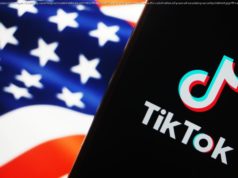The newly minted law could face an uphill battle in court. Critics of the sell-or-be-banned ultimatum argue that it violates TikTok users’ First Amendment rights.
— Legislation forcing TikTok’s parent company to sell the video-sharing platform or face a ban in the U.S. received President Joe Biden’s official signoff Wednesday. But the newly minted law could be in for an uphill battle in court.
Critics of the sell-or-be-banned ultimatum argue it violates TikTok users’ First Amendment rights. The app’s China-based owner, ByteDance, has already promised to sue, calling the measure unconstitutional.
But a court challenge’s success is not guaranteed. The law’s opponents, which include advocacy organizations like the American Civil Liberties Union, maintain that the government hasn’t come close to justifying banning TikTok, while others say national-security claims could still prevail.
For years, lawmakers on both sides of the aisle have expressed concerns that Chinese authorities could force ByteDance to hand over U.S. user data, or influence Americans by suppressing or promoting certain content on TikTok. The U.S. has yet to provide public evidence to support those claims, but political pressures have piled up regardless.
If upheld, legal experts also stress that the law could set a precedent carrying wider ramifications for digital media in the U.S.
Here’s what you need to know.IS A TIKTOK BAN UNCONSTITUTIONAL?
That’s the central question. TikTok and opponents of the law have argued that a ban would violate First Amendment rights of the social media platform’s 170 million U.S. users.
Patrick Toomey, deputy director of the ACLU’s National Security Project, said a TikTok ban would “stifle free expression and restrict public access” to a platform that has become central source for information sharing.
Among key questions will be whether the legislation interferes with the overall content of speech on TikTok, notes Elettra Bietti, an assistant professor of law and computer science at Northeastern University, because content-based restrictions meet a higher level of scrutiny.
Домой
United States
USA — Criminal TikTok has promised to sue over the potential US ban. What’s the...






